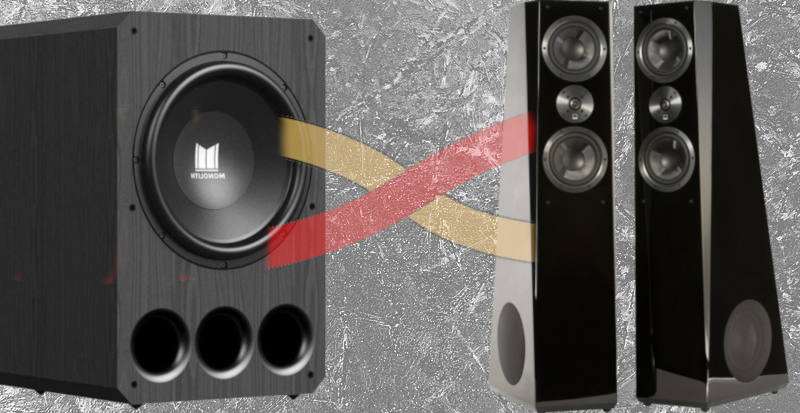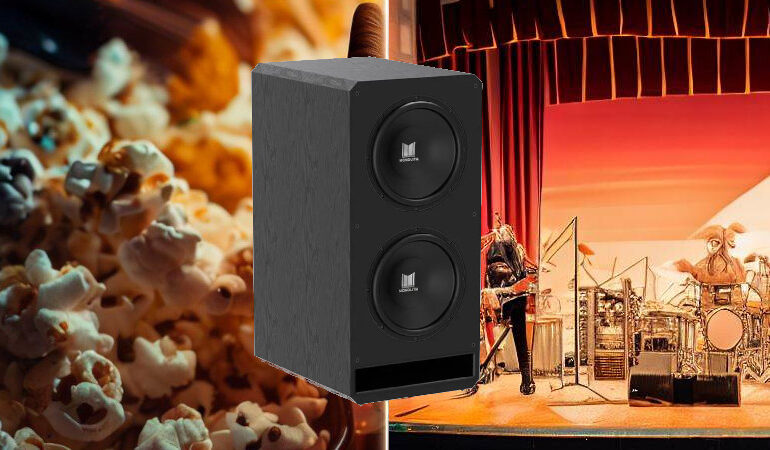Why Does My Subwoofer Sound Great for Movies But Bad for Music?
You’ve taken the plunge and bought your first “real” subwoofer. Good for you! You’ve followed all the instructions on how to set it up, calibrate it, and set the crossover. After popping in one of the many recommended movies for kicking bass, you finally know what everyone was talking about! Your room sounds like a movie theater! But then you decide to listen to your favorite band. Ugh! Your subwoofer might sound great for movies, but it sounds terrible for music! What’s the deal? Let’s discuss!
Amount of Content
There are a number of answers to this question, so let’s start with the most theoretical. Let’s pretend that the quality of the movie track and the music is the same. The same production value, the same mix (if you are referring to background music), and the same dynamic range. If your subwoofer sounds bad with music when it sounded great with movies, it is likely because of the amount of content.
Music, in general, is playing much more of the frequency range at any given time than a movie. During movies, there are long periods where people are talking or not much is happening punctuated by loud sounds where your subwoofer suddenly comes to life. Sure, there is background music and sound effects, but even those are usually lower in volume so you can hear everything else that is happening.
Music will be playing much more content near the crossover region. Since this is where the speakers and subwoofer share content, it will be much more apparent if you have uneven bass. This could be because of a low-quality subwoofer but it is much more likely an interaction with your room. While these bass problems are also present in movies, they are much more likely to be noticed during music reproduction. It isn’t that the subwoofer is bad for music but good for movies, it is that the unevenness of your bass is more noticeable with music.

Poor Quality Content
Many times when people complain that their subwoofer sounds great for movies but bad for music it is because of the quality of their music. Back when MP3 players were first introduced, people were told that they could fit tens of thousands of songs on their devices. To do that the music needed to be compressed to fit. This often creates music files that sound “thin” and lack bass. This is because the MP3 compression codecs delete sounds that the algorithm believes you can’t hear. Bass is often the first to go, especially with more aggressive compression methods.
Streaming isn’t much better. To stream music to your phone or device without buffering, the services have to compress the size of the files. Like MP3 compression, this can affect how your music sounds on your system.
On top of this, there are often different mixes of the same music. If you hear a song during a movie, it has likely been remixed for that movie. The bass will be boosted and rebalanced. The original version of the song may (and often does) sound completely different. Doing an apples-to-apples comparison between movies and music is often impossible.

User Error
Unfortunately, the problem with a subwoofer sounding great for movies but bad for music is often user error. Calibrating a subwoofer can be a tricky process. Even the most experienced users can make mistakes. Often it is because two-channel settings can be unique with some receivers causing your subwoofer to be ignored during music. It could be that your room correction set your speakers to large when they shouldn’t have been.
There are lots of reasons your subwoofer might sound unbalanced during music playback. Many people online will suggest immediately bumping up a subwoofer volume after calibration. This is often the case with dual subwoofers because they feel their subs have gotten quieter. Overly loud bass might sound okay for movies, but it will sound completely wrong for music. There are upmixing options that can change how your music sounds, music often only engages subs at very specific frequencies, and people often (unknowingly) disengage their room correction for music because of engaging the wrong listening mode.
Basically, it’s time to start reading up on subwoofer setup and calibration until you figure out what you can do to maximize your sub’s performance.
Can Your Subwoofer Sound Good for Music and Movies?
Some out there will claim that you can have good performance for music or movies but not both. That’s not the case. As we’ve stated before, a system that sounds good for movies should (and will) also sound good for music (and vice versa). If you’re finding that your subwoofer sounds bad for either music or movies and great for the other, and you’ve ruled out it being a problem with the subwoofer itself, then it’s time to start looking for solutions. Because you deserve great music and great movies!


